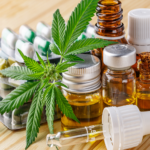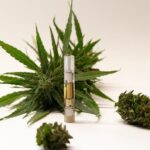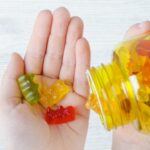Is Drug Addiction a Disease or a Choice? Knowing the Answer for Effective Treatment
In the easiest terms, illicit drug use is the solid impulse to get used to the substances, despite the fact that various unwanted and hazardous outcomes are probably going to happen. Addiction has been depicted as a “restorative issue that influences the mind and changes behavior.” Various substances including liquor, illegal medications, doctor prescribed prescriptions, and even some over-the-counter drugs may fuel the improvement of dependence.
Is Drug Addiction a Disease?
The meaning of compulsion changes among people, associations, and medicinal experts, and society’s perspectives about habit are regularly advancing. The National Institute on Drug Abuse (NIDA) also depict fixation as a long haul and backsliding condition described by the individual impulsively looking for and utilizing drugs regardless of unfriendly outcomes.
These associations consider dependence a confusion or an infection on the grounds that:
- Addiction changes how the cerebrum reacts in circumstances including prizes, stress, and restraint.
- These changes are long haul and can endure well after the individual has quit utilizing drugs.
Contrasting drug addiction with coronary illness may help delineate why it is characterized as an infection by such a significant number of:
- Both fixation and coronary illness bother the normal working of an organ in the body – the heart for coronary illness and the cerebrum for enslavement, states experts from suboxone treatment centers Providence.
- They both can prompt a diminished personal satisfaction and expanded danger of sudden passing.
- Addiction and numerous kinds of coronary illness are to a great extent preventable by taking part in a sound way of life and maintaining a strategic distance from poor decisions.
- They are both treatable to counteract further harm.
Besides, since fixation is set apart by times of recuperation and manifestation repeat, it looks like different infections like hypertension and type-2 diabetes. These illnesses are deep rooted conditions that require nonstop exertion to oversee. Indications will probably return during periods where treatment consistence is low or missing, and side effects will probably decrease when consistence to treatment starts again decisively.
The possibility that substance dependence is a sickness isn’t, in any case, all inclusive. Some would contend that fixation isn’t an infection in light of the fact that:
- Addiction isn’t transmissible or infectious.
- Addiction isn’t immune system, inherited, or degenerative.
- Addiction is self-gained, inferring the individual gives the condition to himself.
Explicit parts of these conclusions are difficult to disprove. For instance, the facts confirm that most drug misuse starts with a choice (in spite of the fact that as a rule substance use started with a medicine from a specialist for a genuine therapeutic issue and advanced into maltreatment).
While nobody constrained a dependent individual to start abusing a substance, it’s difficult to envision somebody would energetically demolish their wellbeing, connections, and other significant aspects of their lives. Unquestionably, if defeating fixation were as simple as essentially ceasing, the issue of enslavement would be a lot simpler to address and backslide would not be as normal.
For what Reason are Drugs Addictive?
Individuals get dependent on medications for some reasons; however one of the main considerations behind why medications are so addictive is the fulfilling, euphoric high they achieve. Medications can possibly essentially affect the frameworks in the mind identifying with joy and inspiration and make it hard for other characteristic delights to analyze.
Each individual encounters common rewards throughout their life like a delectable supper, the lovely inclination following activity, or the bliss after sex, yet medications offer something more. The high that originates from manhandling medications is greater, more brilliant, more intense, and more satisfying than any common reward, and it can cause normal prizes to appear to be little, diminish, and calm by correlation.
One of the cerebrum synthetic substances regularly talked about in the addictive intensity of substances is dopamine. Scientists accept, when a remunerating occasion happens, the mind discharges dopamine to flag the experience and support repetition.1 as far as characteristic rewards, this is sound and props life up; consider the delight got from sex: it energizes reiteration, along these lines sustaining the generation of the species.
Dopamine tells the cerebrum that the experience of utilizing a medication is significant and ought to be rehashed. The cerebrum is customized to recall the individuals, spots, and things related with the utilization, so it will be simpler for the individual to rehash the circumstance.
With reiteration, these blasts of dopamine advise the mind to esteem tranquilizes more than common prizes, and the cerebrum modifies so the reward circuit turns out to be less touchy to regular prizes. This can make an individual vibe discouraged or inwardly “level” on occasion they aren’t utilizing drugs. After some time, the longing for medications turns into a scholarly reflex—an individual can be activated to use by the individuals, spots, and things that are connected to their medication use, similarly as somebody may get ravenous driving by their preferred eatery, just the craving is probably going to be significantly more overpowering. Longings can feel wild even a very long time after an individual gets calm, believes experts from suboxone treatment clinics.
Simultaneously the medication is delivering these adjustments in the mind that are related with the improvement of enslavement, the individual may likewise come to endure higher dosages and even rely upon the medication to feel well. Resistance and reliance create as a result of changes the cerebrum makes to deal with the adjustments that originate from the rehashed nearness of a medication. Resilience and reliance are two indications of a substance use issue however may likewise create somewhat without enslavement.
Compulsion and physical reliance are regularly discussed just as they are tradable; in any case, they are isolated marvels that can exist without the other. Somebody utilizing their narcotic agony drugs as endorsed can build up some physiological reliance however may not show the habitual practices of compulsion. Then again, a few medications might be utilized in an enthusiastic way that demonstrates a compulsion without physically depending on it to feel well. So, don’t delay. Seek treatment for suboxone addiction Providence.
Author Bio
Richard Bradford is a renowned freelance writer and has multiple health related articles published in his name. He has a wide knowledge in various topics and tries to write highly medical capacitive articles for his followers.






